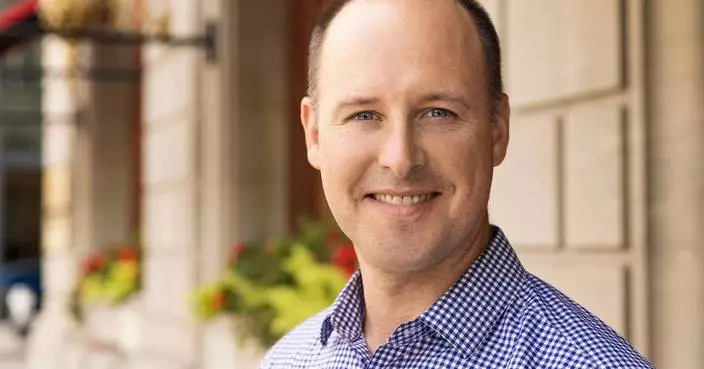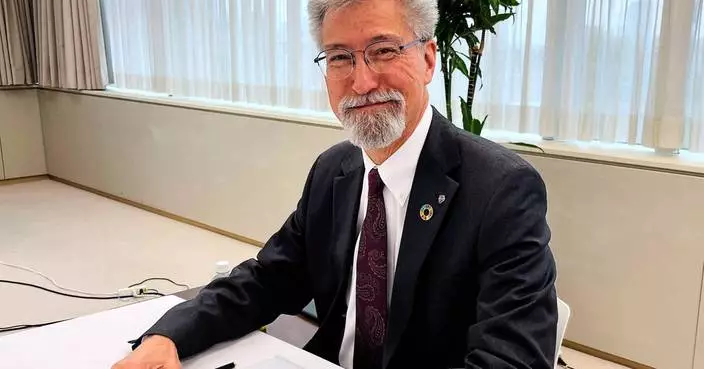Dated 100 years ago, prostitutes during the Meiji period were held in cages to attract customers in Yoshiwara, a center of brothels at that time. Girls as young as seven years old were sold to the brothels as sex workers to repay family debts.
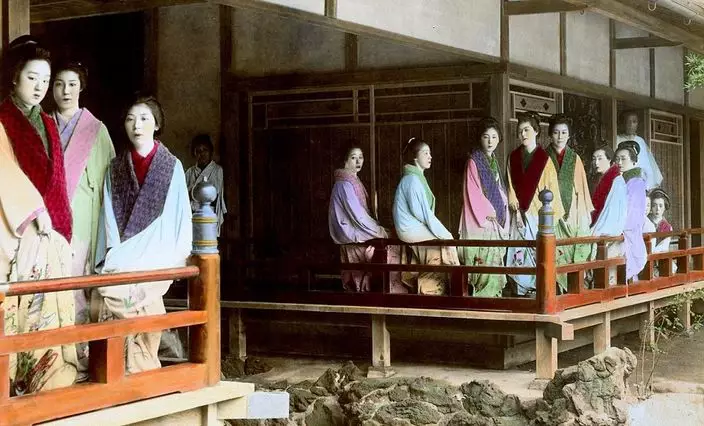
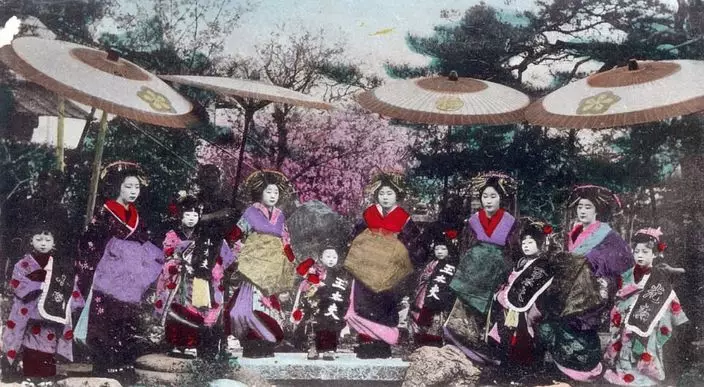
The photos were taken between 1890 and 1900. The prostitutes were mainly from the countryside. Some lucky ones would be given training in etiquette such as Tea Art classes. However most had to stay in the brothels until some wealthy men paid off their debts and kept them as concubines, or they had enough money to buy back their own freedom.
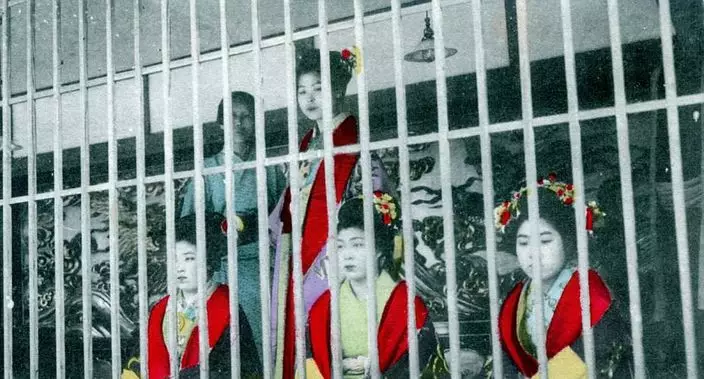
The Nobel Prize Nominee Hideyo Noguchi, whose face is on the current 1000 yen banknote, was a big fan of brothels in Yoshiwara. He was reported to have spent a big sum of money for a night of pleasure. Men with different backgrounds were welcomed, while samurais had to remove their swords before getting in.
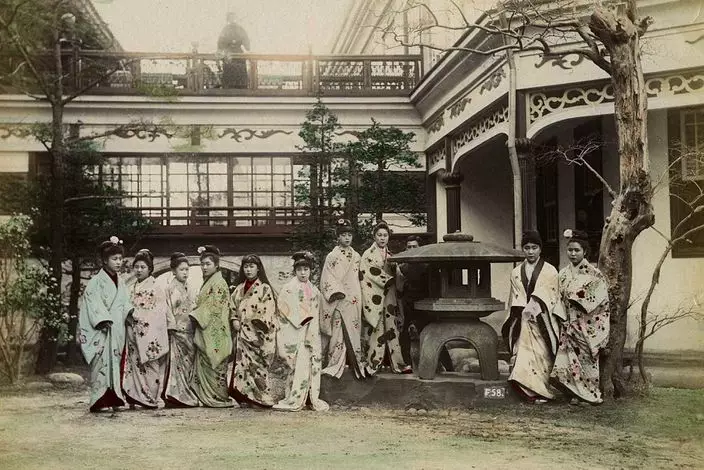
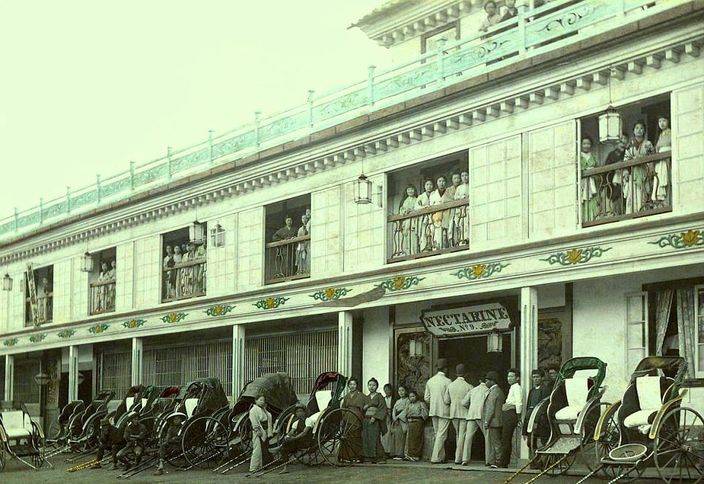 These brothels were called ‘harimise’, where prostitutes had to sit behind the bars and faced the main streets to let customers choose. Since 1903, sex workers were picked and chosen from their photos. And later in 1916, ‘harimise’ brothels were banned.
These brothels were called ‘harimise’, where prostitutes had to sit behind the bars and faced the main streets to let customers choose. Since 1903, sex workers were picked and chosen from their photos. And later in 1916, ‘harimise’ brothels were banned.
MISSISSAUGA, Ontario (AP) — Donald Trump cast a long shadow over Canada's national election — and many Canadian voters noticed.
In his first 100 days back in the White House, the U.S. president has lobbed barbs at America's northern neighbor, levied tariffs on Canadian goods and talked about making Canada the 51st state.
It had many Canadian voters thinking about Trump and how the parties on the ballot would respond to him. Prime Minister Mark Carney's Liberals won over Conservative opposition leader Pierre Poilievre, a dramatic reversal of fortune credited largely to Trump.
Here are some voices from voters casting their ballots in Monday's elections:
In Toronto, Reid Warren said he voted Liberal because he saw the party as the best amid what he characterized as “real uncertainty” in the economy particularly.
“I don’t think there is a better choice right now,” he said, voting in Toronto. "I know people believe in Poilievre but it’s the same, like, soundbites that you get from anybody else. It sounds like mini-Trump to me.”
Warren, who works at a wholesale food distribution center, said he did feel somewhat boosted by unity among Canadians created by “all the shade being thrown from the States,” but ‘it's definitely created some turmoil, that’s for sure."
“There’s only so many times that you can hear, you know, ’51st state’ and ‘governor this’ and all that disrespect that’s coming that you have to think, you know, at some point you have to take it seriously," said Duncan Garrow, a resident of Toronto.
"In a very bizarre, upside down, twisted way, this might be a good thing for Canada, because I think maybe we’ve had too much of a relationship with the United States. I mean, they’re right there, they’re always going to be our neighbor, our partner, our friend, hopefully. But thinking about other possibilities, thinking about cutting down some of our own barriers within Canada, but also thinking more internationally, just as a country, I think that’s a very healthy, progressive way to be going forward.”
Sisters Laiqa and Mahira Shoaib said they both voted for change in Monday’s election, and both said Trump's rhetoric and tariff plans influenced their decision.
The sisters, who immigrated from Pakistan a decade ago and voted in Mississauga, Ontario, said the economy has worsened and job opportunities have dried up under Liberal rule.
“It was different when we arrived,” Laiqa Shoaib said after casting her ballot. “We need to get out of Liberals.”
Laiqa, 27 and a health care worker, voted for the New Democratic Party. Mahira, 25, who works at a bank, supported the Conservative Party, and Poilievre, whom she described as “business-minded.”
“We would definitely be the 51st state if Mark Carney wins,” she said.
Kinnard reported from Chapin, South Carolina. She can be reached at http://x.com/MegKinnardAP

Liberal Party's supporters cheer on results at the party election night headquarters in Ottawa, Monday, April 28, 2025. (Nathan Denette/The Canadian Press via AP)




 These brothels were called ‘harimise’, where prostitutes had to sit behind the bars and faced the main streets to let customers choose. Since 1903, sex workers were picked and chosen from their photos. And later in 1916, ‘harimise’ brothels were banned.
These brothels were called ‘harimise’, where prostitutes had to sit behind the bars and faced the main streets to let customers choose. Since 1903, sex workers were picked and chosen from their photos. And later in 1916, ‘harimise’ brothels were banned.



